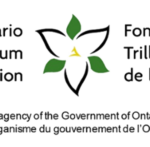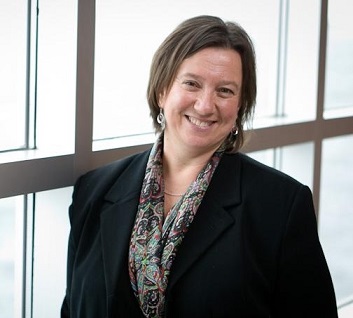Melissa Elizabeth Eberly, immigration and family lawyer with Gibson Piazza Anders, discusses upcoming changes to the Citizenship Act concerning Lost Canadians.
In Canada, the Citizenship Act is the law that governs who is a Canadian citizen, how to become a Canadian citizen, and how Canadian citizenship can be lost. There are several ways that a person may be or become a Canadian citizenship, including by being born in Canada, by having a Canadian citizen parent at the time of their birth, (called citizenship by descent), and by immigrating to Canada and becoming Canadian citizen through the naturalization process.
The Citizenship Act has changed a lot over the years, and this has impacted who has been considered or eligible for Canadian citizenship. Some persons, who we would now consider Canadian, were denied citizenship for a variety of reasons, some of which were discriminatory and unconstitutional.
One example is the “second generation cut-off”. In 2009, a change to the Citizenship Act came into effect that limited Canadian citizenship by descent to the first generation born outside of Canada. In other words, Canadian citizens who themselves were born outside of Canada were not allowed, in some cases, to pass their Canadian citizenship onto any of their children born outside of Canada. The second generation cut-off applied differently to persons who became Canadian citizens through the naturalization process. For the purposes of the second generation cut-off, they were treated as if they were born in Canada and the second generation cut-off could apply to subsequent generations born outside of Canada.
Here’s an example of how this rule works from a recent case, Bjorkquist et al v Attorney General of Canada,[1] (“Bjorkquist”) that I will discuss in more detail below:
“The Setterfield Family
Tim Setterfield’s father, Tom Setterfield, is a Canadian citizen by birth. He met Tim Setterfield’s mother, Penelope Setterfield, a citizen of the United Kingdom, in Thailand in 1982. The pair married in Ottawa in 1983. In 1984, they moved temporarily to Fiji for Tom Setterfield’s work, and decided to begin their family in Fiji.
Tim Setterfield was born in Fiji in 1985, and received Canadian citizenship by descent from his father. Between 1988 and 1991, the family resided in the United Kingdom where Tim Setterfield’s father completed his PhD at Cambridge University. The family returned to Canada in 1991.
Tim Setterfield attended school and university in Canada. In 2013, he moved to the United States to start his PhD in Aeronautics and Astronautics at Massachusetts Institute of Technology. In 2017, he applied for the Canadian Space Agency’s Astronaut Corps and reached the final 72 applicants. Also in 2017, he accepted a position at the Jet Propulsion Laboratory of the National Aeronautics and Space Administration (“NASA”).
In 2018, Mr. Setterfield married his wife, who is an American citizen. They had a child, GH, in the United States in 2020. GH was denied Canadian citizenship because of the second-generation cut-off.”[2]
In April 2023, the members of seven families argued that the second generation cut-off violated their constitutional rights before Ontario Superior Court of Justice. In Bjorkquist,[3] the Honourable Justice Akbarali agreed and found that the second generation cut-off was unconstitutional because it violated their constitutional right to freedom of movement, which includes the right to enter, remain in or leave Canada:
“The question thus becomes whether the second-generation cut-off interferes with a gen zero Canadian’s or first generation born abroad Canadian’s right to enter, remain in, or leave Canada, and if so, whether that interference is an unreasonable, unrealistic, and impractical limit on the international mobility rights held by gen zero and first generation born abroad Canadians.
In my view, the second-generation cut-off interferes with the right of first generation born abroad Canadians to remain in Canada, because it interferes with their ability to remain in Canada with their dependent children. The second generation born abroad children may be able to enter Canada temporarily, and may succeed in obtaining permanent status in Canada or citizenship through other means, but it is not a given that the children of first generation born abroad Canadians will receive permanent residence status or Canadian citizenship.”[4]
The Honourable Justice Akarali also found that the second generation cut-off was unconstitutional because it violated their constitutional right to equality before and under the law and equal protection and benefit of the law without discrimination based on national origin and the intersection between national origin and sex:
“For all of these reasons, I conclude that [the second generation cut-off] creates a distinction based on national origin; it treats differently those Canadians who became Canadians at birth because they were born in Canada from those Canadians who obtained their citizenship by descent on their birth outside of Canada. The latter group holds a lesser class of citizenship because, unlike Canadian-born citizens, they are unable to pass on Canadian citizenship by descent to their children born abroad.[5]
…
While the simplicity of the rule may respond to the desire for clarity, the inflexibility of the rule means that the first generation born abroad and their children are assumed to be Canadians of convenience, without ties to Canada, who have made no contribution to Canada, but who seek Canadian citizenship for themselves and their children for its benefits. In other words, the policy enacted through an inflexible second-generation cut off reinforces the stereotype that Dr. Harder explains was in part responsible for creating the political opening for amendments to the citizenship legislation: that first generation born abroad Canadians and their children are parasites or leeches, in the sense defined by the Merriam Webster dictionary as “a person who seeks support from another without making an adequate return”.
I thus conclude that the distinction based on national origin reinforces the disadvantage of the first generation born abroad by reinforcing the negative stereotyping to which they have been subjected, as people who offer nothing to Canada but seek to take advantage of the benefits of Canadian citizenship.
These negative impacts are suffered by first generation born abroad women and men. However, in my view, the disadvantage the second-generation cut-off places on biological women is further exacerbated by the impact it has on them based on their sex.[6]
The Honourable Justice Akarali then considered whether the second generation cut-off was nevertheless a reasonable limit on the right of Canadians to freedom of movement and right to equality, but found that it was not. Since the law was found to be unconstitutional, the law was declared to no longer apply. However, this “declaration of invalidity” was suspended for a period of six months to give the Canadian government the opportunity to make changes to the Citizenship Act and the second generation cut-off. This decision was released on December 19, 2023, so the law will become invalid on June 19, 2024.
On January 22, 2024, the Canadian government announced[7] that it agreed with the decision and agreed that the second generation cut-off was unconstitutional. As a result, the Canadian government announced that it would not appeal the decision.
On May 23, 2024, the Canadian government introduced[8] bill C-71, An Act to amend the Citizenship Act (2024).[9] This bill is a proposed change to the second general cut-off that the Canadian government is currently considering and may soon become law. If it becomes law, bill C-71 would automatically give Canadian citizenship to persons born outside of Canada to a Canadian parent who was also born outside of Canada before bill C-71 becomes law. After bill C-71 becomes law, persons born abroad who have or adopt a child also born outside of Canada will only be able to pass on their Canadian citizenship to their child if they have spent at least 1,095 days physically present in Canda before the birth or adoption of their child. This is being referred to as the “substantial connection” test. Bill C-71 also restores citizenship to other “Lost Canadians” that have not been discussed in this blog post.
Bill C-71 completed its “first reading” on May 23, 2024, the first step in the legislative process, which means that it’s on its way to becoming law. However, as of the writing of this blog on May 31, 2024, this bill has several more steps that it needs to go through before it becomes law, and it could have change and evolve over the course of the legislative process. Since the second generation cut-off will become invalid on June 19, 2024, we should not have to wait much longer before we know the outcome of bill C-71. Stayed tuned for further announcements.
[1] Bjorkquist et al. v Attorney General of Canada, 2023 ONSC 7152; https://www.canlii.org/en/on/onsc/doc/2023/2023onsc7152/2023onsc7152.html
[2] Bjorkquist et al. v Attorney General of Canada, 2023 ONSC 7152 at pars 39-42: https://canlii.ca/t/k1vdj#par39
[3] Bjorkquist et al. v Attorney General of Canada, 2023 ONSC 7152; https://www.canlii.org/en/on/onsc/doc/2023/2023onsc7152/2023onsc7152.html
[4] Bjorkquist et al. v Attorney General of Canada, 2023 ONSC 7152 at paras 182-183: https://canlii.ca/t/k1vdj#par183
[5] Bjorkquist et al. v Attorney General of Canada, 2023 ONSC 7152 at para 84: https://canlii.ca/t/k1vdj#par84
[6] Bjorkquist et al. v Attorney General of Canada, 2023 ONSC 7152 at paras 157-159; https://canlii.ca/t/k1vdj#par157
[7] https://www.canada.ca/en/immigration-refugees-citizenship/news/2024/01/canada-will-not-appeal-decision-that-strikes-down-first-generation-limit-to-canadian-citizenship-by-descent.html
[8]https://www.canada.ca/en/immigration-refugees-citizenship/news/2024/05/government-of-canada-introduces-legislation-for-citizenship-by-descent.html
[9] https://www.parl.ca/legisinfo/en/bill/44-1/c-71
Immigrant Women Services Ottawa
219 Argyle Avenue, Suite 400
Ottawa, Ontario
K2P 2H4
Tel: 613-729-3145
Fax: 613-729-9308




 Abigail Williams - Treasurer
Abigail Williams - Treasurer Maria Choque - Member
Maria Choque - Member Hosai Qasmi - Member
Hosai Qasmi - Member Georgette Morris - Member at large
Georgette Morris - Member at large Veronica Dingile Mbofana - Member
Veronica Dingile Mbofana - Member


